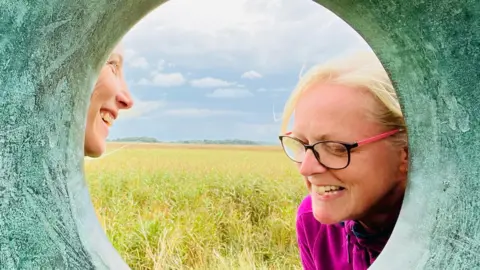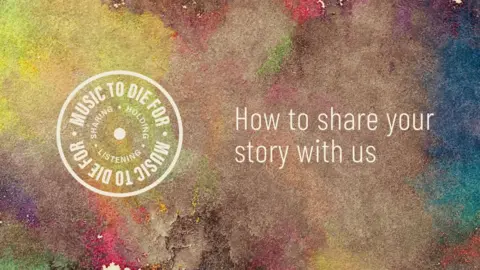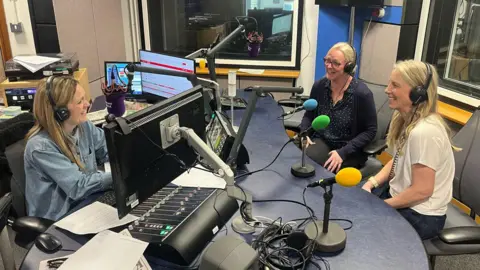Remembering loved ones through songs and stories
 Contributed
ContributedThe people behind a new music project say they hope it will help keep memories of loved ones alive after they have died.
Music to Die For was founded by Hazel Harrison and Phillipa Anders and aims to explore music's connection to memories and emotions.
They are asking people to share a piece of music that connects them with "someone you've lost and the story behind it".
Ms Anders said: "Just over four years ago I lost my husband very suddenly, and this project and meeting Hazel has created this incredible way of being able to use music in an incredibly powerful way."
 Contributed
ContributedMusic to Die For is described as a space for people who have been bereaved "to honour their memory, keep their story alive and explore the role music plays in your connection to them".
There is a guide to help people submit their stories with four parts:
- About the music
- Making connections
- Finding meaning
- Moving forward
These are then shared on the website and via social media.
The project is being supported by a Creative Health Residency by Britten Pears Arts in Suffolk.
Dr Harrison said: "As a clinical psychologist I'm really interested in emotion and how we understand and explore our experiences and improve our wellbeing, and music for me is a really key ingredient for that.
"Music allows us to sit in a particular emotion that we're feeling.
"We feel this whole messy array of emotions, as humans, and sometimes we just need a piece of music to hold us in that space.
"That can be a joyful piece of music, sometimes that can be a deeply emotive or sad piece of music that enables us to connect with that loss and that sad feeling.
"Also it can help us map our journey - we know grief isn't a linear process, we will move through a range of different experiences that link to yearning and loss.
"But also to the bittersweet nature of remembering the joyful parts."
 Contributed
ContributedMs Anders said: "I've always had a life and career in music, so every single minute of my day was filled with music in some way.
"After my husband Rob died, for a good number of months I just couldn't listen to music at all.
"I couldn't see it live, I couldn't listen to it at home, I just didn't want music.
"Then very gradually I started to reintroduce it.
"But what has happened now is the music I listen to is almost completely separate from what I was listening to before.
"My tastes have really developed and grown, I'm listening to stuff now I wouldn't have listened to before.
"I'm going to gigs that I wouldn't have gone to you before, it's opened up a new relationship with music that feels healthy.
"There is a saying 'grieve fully and live fully'.
"It's allowing me to stay connected to Rob, but at the same time It's about the forward path while still connecting to what I had."
Follow Suffolk news on BBC Sounds, Facebook, Instagram and X.
